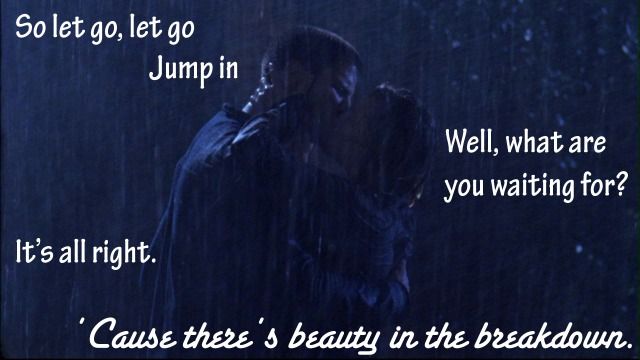
But there's a reason for the pseudo-poignant title: for every page of my book that will actually see the public world, there is probably another page that will never see the light of day again. What I mean is that, in total, I probably have about 300 pages worth of words, sentences, paragraphs -- even whole pages -- that were scrapped. I've changed the wording in a sentence, only to change it again the next day, only to delete it a week later. I've written huge passages that would somehow fit in the book at a future point -- only to realize there was no place for it after all. Entire dialogues that I thought were brilliant ended up bogging down the story and were subsequently axed.
Most recently, I came to a frustrating conclusion: as much as I loved the books-and-a-tea-cup idea (and as gorgeous of a cover art that my sister-in-law whipped up), it wasn't a good fit for the book. I need something with more zing -- the book itself is as many parts sardonic as it is comical. I needed to go in a completely different direction. And before I could make a (new) prototype to my liking, I realized that the wording to my title did not have the draw that I was hoping for, sending me back to the drawing board for the second time in a week.
Sometimes life needs its own Price is Right "wah-waaah" horn.
But that's the most important trick in the rewriting process: learning to let go. Understanding that sometimes things aren't what you imagined or what you predicted, and accepting that it won't be used. It means coming to grips with deleting something you've spent hours on (side note: while I reword sentences with no mercy, I never "delete" passages that I love but couldn't fit in the story. I have a folder on my computer dedicated to such failings, which I call my Writing Graveyard), understanding that the story is more important than your pride.
It's also important to let go any apprehension. Apprehension not only in the editing process, but in the original writing process as well. The biggest obstacle of any artist is the fear that they're just not good enough. Ironically, that fear becomes their downfall. Too many writers trip over themselves because they think they are not telling their story clearly enough. Or they give up because they feel like they're churning out absolute rubbish.
Which leads me to the second tier of this fear: let go of the idea that having to do a complete rewrite means you have no talent. Editing is not about recognizing that you suck; editing is about is about recognizing that you can do better.
Let me give you a recent example: I've decided to dig up my old short stories, polish them up, and try my luck in the literary magazine/e-zine world. One written in 2009 needed rewrite after rewrite. The story was engaging, but the writing was flat and the beat & flow were all over the place. I was expecting that -- this was something I wrote when I was 21, after all. But then I came across this gem:
"Wait a minute -- I know you," she stated declaratively.
A declarative statement? SAY IT ISN'T SO!
I had to take a break from writing just to soak in that monstrosity. Aside from the fact that "declaratively" technically isn't even a word, I adhere to the Stephen King philosophy of limiting the use of adverbs in dialogue (but more on that later), and the above word pairing had just won first prize in the "Redundant Wording in Flowery Writing" contest.
Anyone in my shoes could easily have taken that experience the wrong way. No "good" writer could possibly make a mistake like that! Anyone could look at past writing slip-ups and take it as proof that they're no good.
Word of advice: don't.
Finding flaws in your writing (even writing that you once that was good) only means that you are growing and improving. Every great writer looks back on their old work and shakes their head in disbelief (Don't believe me? Next time you run into Joss Whedon, ask him about the original Buffy pilot, sans Alyson Hannigan).
The only time you should be worried is when you look over all of your work and find absolutely nothing that could be improved. There is truly nothing more reckless than a writer who sits back, hands behind their head, and declares (quite declaratively), "Damn, I'm a good writer!" While telling yourself that you suck will stop any creativity, telling yourself that you rock will stop any improvements.
Lastly, I also have to learn to let go of my anxiousness. I had mentioned ad nauseum how excited I am about publishing my own book. I see someone with a Kindle on the T and I get pumped. I find someone in the lobby of a restaurant reading on their cell phone and I just want to publish my work now. But, obviously, I have a long road to go, especially since this is a (semi)solo effort (another bit of advice: never be a lone wolf in writing. As I've hinted at before, I would be no where with my husband, my sister-in-law, and my best friend to help me in the rewrite/publishing process). That anxiousness will only result in sloppy edits, lackluster cover art, and a title that I end up hating two days later.
I recognize this is a long post, so I'll sum up everything with an appropriate graphic:

photo courtesy of oth-caps.com, lyrics courtesy of Frou Frou, snark courtesy of me

No comments:
Post a Comment